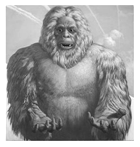题目内容
【题目】假定英语课上老师要求同桌之间交换修改作文,请你修改你同桌写的以下作文。文中共有10处语言错误。每句中最多有两处。每处错误仅涉及一个单词的增加、删除或修改。
增加:在缺词处加一个漏字符号(∧),并在其下面写出该加的词。
删除:把多余的词用斜线(\)划掉。
修改:在错的词下划一横线,并在该词下面写出修改后的词。
注意:1.每处错误及其修改均仅限一词。
2.只允许修改10处,多者(从第11处起)不计分。
Boys and girls,
Attention, please. I had good news for you. A new book How to Improve Your English is now on sell in a nearby bookstore. I think the book is of great help our English study and suitable for our middle school students. There are many practical examples in the book, included a lot of pictures. The price is five yuan every. Those which want to buy the book should come here as soon as possibly and get your money ready. By the eleven o’clock tomorrow morning the money should be given neither to me or to our monitor. We’ll go to buy the books tomorrow afternoon.
【答案】
【解析】1.had改为have考查时态。文章是一篇演讲,讲述了现在的情况,应该用一般现在时态,故将had改为have。
2.sell改为sale考查固定搭配。on sale在售,故将sell改为sale。
3.help后加to考查固定搭配。be of help to something对…有帮助。故在help后加to。
4.our改为us考查代词。我们中学生us middle school students作介词for的宾语。故将our改为us。
5.included改为including考查介词。句意:书中有很多实用的例子,包括很多图片。Including介词短语作状语,故将included改为including。
6.every改为each考查代词。句意:每本五元。Each是代词,代指前边提到的书,every只能用作形容词,故将every改为each。
7.which改为who考查定语从句关系代词。Those指“想买书的人”因此定语从句用who引导,故将which改为who。
8.possibly改为possible考查形容词。句意:应该尽可能快的来,come as soon as possible,故将possibly改为possible。
9.by后边的the去掉考查冠词。在具体的几点钟前边不用冠词,故将the去掉。
10.neither改为either考查固定搭配。Neither…nor两者都不,either…or两者中的某一个,句意:把钱给我或者班长,故将neither改为either。





